Introduction
One of the top reasons why claims get denied is due to medical necessity not being established through accurate information provided on the claim form. This can include missing or incorrect patient information, such as name, date of birth, or insurance ID number. Additionally, it can also encompass incomplete or inaccurate diagnosis or procedure codes, which are essential for the insurance company to determine the medical necessity and process the claim correctly.
When this happens, the insurance company may deny the claim and request additional information, which can delay payment and cause frustration for both the healthcare provider and the patient. To fix this issue, healthcare providers must double-check all information before submitting a claim. This includes verifying patient demographics and insurance information, as well as ensuring that all diagnosis and procedure codes are accurate and up to date.
It may also be helpful to implement a system for double-checking claims before submission to catch any errors or omissions. By taking the time to ensure that all information is accurate and complete, healthcare providers can reduce the risk of claims being denied for this reason. Another way to address this issue is to provide training for staff on how to accurately complete claim forms and verify patient information.
This can help ensure that all staff members are aware of the importance of accurate and complete information and can help reduce the likelihood of claims being denied for this reason in the future.
Key Takeaways
- Inaccurate or incomplete information can lead to claim denials, so it’s important to double-check all details before submitting.
- Lack of medical necessity can be addressed by ensuring that all services and treatments are well-documented and justified.
- Failure to obtain preauthorization can be fixed by understanding the requirements and obtaining the necessary approvals before treatment.
- Coding errors can be avoided by training staff on proper coding practices and conducting regular audits.
- Timely filing issues can be resolved by implementing a system to track and submit claims within the required timeframe.
Lack of Medical Necessity
Claims may also be denied due to a lack of medical necessity, meaning that the services or procedures provided were not deemed medically necessary by the insurance company. This can happen when healthcare providers fail to properly document the medical necessity of a service or procedure, leading the insurance company to deny the claim. Without proper documentation, it can be difficult for the insurance company to determine whether the services provided were indeed medically necessary, leading to a denial of the claim.
To address this issue, healthcare providers should ensure that they are documenting the medical necessity of all services and procedures provided. This can include detailed notes in the patient’s medical record explaining the reason for the service or procedure, as well as any supporting documentation such as test results or imaging studies. By thoroughly documenting the medical necessity of all services provided, healthcare providers can reduce the risk of claims being denied for this reason.
It may also be helpful for healthcare providers to review their documentation practices and provide training for staff on how to properly document medical necessity. This can help ensure that all staff members are aware of the importance of thorough documentation and can help reduce the likelihood of claims being denied for lack of medical necessity in the future.
Failure to Obtain Preauthorization
Another common reason for claims being denied is a failure to obtain preauthorization for certain services or procedures. Many insurance companies require preauthorization for certain services or procedures in order to ensure that they are medically necessary and appropriate for the patient’s condition. When healthcare providers fail to obtain preauthorization when required, the insurance company may deny the claim, leaving the provider with unpaid services and the patient with unexpected out-of-pocket expenses.
To avoid this issue, healthcare providers should familiarize themselves with their patients’ insurance plans and understand which services or procedures require preauthorization. It is important to communicate with patients about any preauthorization requirements and ensure that they understand their responsibilities in obtaining preauthorization before receiving certain services or procedures. Additionally, healthcare providers should have a system in place to track preauthorization requirements and ensure that they are obtained before services are provided.
It may also be helpful for healthcare providers to review their preauthorization processes and provide training for staff on how to properly obtain preauthorization when required. This can help ensure that all staff members are aware of the importance of preauthorization and can help reduce the likelihood of claims being denied for this reason in the future.
Coding Errors
| Reason for Denial | How to Fix |
|---|---|
| Incorrect patient information | Double check patient details before submitting |
| Missing or incorrect codes | Ensure accurate and up-to-date coding |
| Lack of pre-authorization | Obtain pre-authorization before services |
| Non-covered services | Verify coverage before providing services |
| Duplicate claims | Review claims for duplicates before submission |
| Timely filing limits | Submit claims within specified timeframes |
| Incorrect provider information | Ensure accurate provider details on claims |
| Coordination of benefits issues | Verify primary and secondary insurance information |
| Medical necessity not met | Document and justify medical necessity |
| Claim formatting errors | Review and correct any formatting issues |
Coding errors are another common reason for claims being denied by insurance companies. This can include using incorrect diagnosis or procedure codes, failing to include required modifiers, or using outdated codes that are no longer valid. When coding errors occur, it can lead to a denial of the claim and require additional time and resources to correct the error and resubmit the claim.
To address this issue, healthcare providers should ensure that they are using accurate and up-to-date diagnosis and procedure codes when submitting claims. This can include regular training for staff on coding guidelines and updates, as well as implementing a system for double-checking codes before claims are submitted. It may also be helpful to have a coding expert review claims before submission to catch any errors or omissions.
Additionally, healthcare providers should have a process in place for handling coding denials and resubmitting claims with corrected codes. This can help ensure that coding errors are addressed promptly and that claims are resubmitted promptly to avoid further payment delays.
Timely Filing Issues
Claims may also be denied due to timely filing issues, meaning that the claim was not submitted within the required timeframe specified by the insurance company. Each insurance company has its own guidelines for timely filing, which can range from 90 days to one year from the date of service. When claims are not submitted within this timeframe, they may be denied, leaving the healthcare provider with unpaid services and the patient with unexpected out-of-pocket expenses.
To avoid timely filing issues, healthcare providers should familiarize themselves with the timely filing requirements of each insurance company with which they work. It is important to have a system in place for tracking claim submission deadlines and ensuring that claims are submitted within the required timeframe. This can include regular monitoring of claim submission dates and implementing reminders or alerts to ensure that claims are not overlooked.
It may also be helpful for healthcare providers to review their claim submission processes and provide training for staff on how to properly submit claims in a timely manner. This can help ensure that all staff members are aware of the importance of timely filing and can help reduce the likelihood of claims being denied for this reason in the future.
Coordination of Benefits Problems
Coordination of benefits problems can also lead to claims being denied by insurance companies. This can occur when a patient has multiple insurance policies, such as through a spouse’s employer or through Medicare and Medicaid, and there is confusion about which insurance plan is primary and which is secondary. When coordination of benefits is not properly handled, it can lead to denials of claims and delays in payment.
To address this issue, healthcare providers should have a process in place for verifying patients’ insurance coverage and coordinating benefits when multiple policies are involved. This can include obtaining updated insurance information from patients at each visit and verifying coverage with all applicable insurance companies before submitting claims. It may also be helpful to provide training for staff on how to properly handle coordination of benefits and ensure that all staff members are aware of the importance of accurate coordination.
Additionally, healthcare providers should have a system in place for handling coordination of benefits denials and resubmitting claims with corrected information. This can help ensure that coordination of benefits problems are addressed promptly and that claims are resubmitted promptly to avoid further payment delays.
Documentation Deficiencies
Documentation deficiencies are another common reason for claims being denied by insurance companies. This can include missing or incomplete documentation in the patient’s medical record, such as progress notes, test results, or imaging studies. Without proper documentation, it can be difficult for the insurance company to determine whether the services provided were medically necessary and appropriate for the patient’s condition, leading to a denial of the claim.
To address this issue, healthcare providers should ensure that they are thoroughly documenting all services provided in the patient’s medical record. This can include detailed progress notes, test results, imaging studies, and any other relevant documentation that supports the medical necessity of the services provided. It may also be helpful to implement a system for double-checking documentation before submitting claims to catch any errors or omissions.
Additionally, healthcare providers should have a process in place for handling documentation deficiencies and providing additional documentation when requested by the insurance company. This can help ensure that documentation issues are addressed promptly and that claims are resubmitted with all necessary documentation to support their validity.
Conclusion
There are many reasons why claims may be denied by insurance companies, but by addressing these common issues and implementing best practices for claim submission and documentation, healthcare providers can reduce the risk of denials and improve their revenue cycle management.By ensuring accurate and complete information on claim forms, documenting medical necessity thoroughly, obtaining preauthorization when required, using accurate coding, submitting claims promptly, coordinating benefits properly, and addressing documentation deficiencies promptly, healthcare providers can improve their chances of having claims processed successfully and receiving timely payment for their services. It is important for healthcare providers to stay informed about changes in insurance guidelines and regulations and to provide ongoing training for staff on best practices for claim submission and revenue cycle management. By taking proactive steps to address these common reasons for claim denials, healthcare providers can improve their financial performance and provide better service to their patients.


